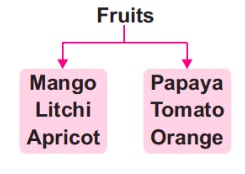Subject :NSO Class : Class 9
Subject :NSO Class : Class 8
Ans 5:
Class : Class 9
When rubbed with fur, glass will become negatively charged. However if silk is used instead of fur, glass will acquire a positive charge.
Ans 6:
Class : Class 9
glass rod when rubbed with fur, it gives electrons to fur and becomes positively charged
Ans 7:
Class : Class 8
This is wrong, yet nothing has been done to fix it. It has been discovered to be wrong FOUR YEARS ago!
Ans 9:
Class : Class 8
The options given here are a plastic scale,a woollen cloth, an inflated balloon and a COPPER rod, not a GLASS rod. How can the options appear differently for others, since many people here are saying that there is glass rod involved? Also, plastic is an insulator of electricity, so ideally it wouldn't acquire any charge, right? SOF should give a solution to this problem.
Post Your Answer
Subject :NSO Class : Class 8
Post Your Answer
Subject :NSO Class : Class 5
Post Your Answer
Subject :NSO Class : Class 4
Post Your Answer
Subject :NSO Class : Class 10
Post Your Answer
Subject :NSO Class : Class 5
Ans 3:
Class : Class 3
All metal expands on heating. Here metal Y expands more which leads to curling of both X and Y. B is the correct option.
Ans 4:
Class : Class 4
ans should be D as if metal x contracts and metal y expands then the 2 metals will bend inward an as an ellusion we see that y is longer than x
Ans 8:
Class : Class 4
iron-nickel alloy notable for its lack of expansion or contraction with temperature changes. hence all metals do NOT expand
Ans 11:
Class : Class 7
Sumit Singhal , this is a bimetallic metal . Here , the two metals cannot go away from each other . So here , if y expands than x will also expand , and if x expands than y will also expand . I am getting confusion between A and B .
Ans 13:
Class : Class 9
B because if Y expands and X contracts, X will be a lot smaller than Y. Here, both are almost the same size.
Ans 19:
Class : Class 5
as if we will contract metal x so it is not neccessery that y will contract if we contract metal y x has to be conyracted with it ans should be a
Ans 23:
Class : Class 1
The answer is B because the question says that he HEATED both the metals (most metals expand on heating) and Y has expanded more than X
Post Your Answer
Subject :NSO Class : Class 8
Ans 2:
Class : Class 6
answer should be A, as hydrogen is not released at cathode if the other cation is Zinc or below in the electrochemical series
Ans 14:
Class : Class 9
I will go mad with the number of wrong answers in this website.. answer should be a. For example when a spoon has to be electroplated with copper, copper is ALWAYS ON ANODE and the spoon is ALWAYS ON CATHODE. Why different logic is used here?
Ans 23:
Class : Class 7
i do feel that correct answer is A.as P has to be electroplated ,it must be on cathode(-ve).so,correct is =A
Ans 24:
Class : Class 10
In reactivity series hydrogen is below zinc and is less reactive than zinc. As hydrogen below zinc therefore will reduce more and earlier than zinc , hence will go to cathode and zinc will reduced or deposit at anode. therefore P will be connected to R and Q to S.hence ans is :C
Post Your Answer
Subject :NSO Class : Class 3
Post Your Answer
Subject :NSO Class : Class 7





 . It is common in Kashmir and
. It is common in Kashmir and 